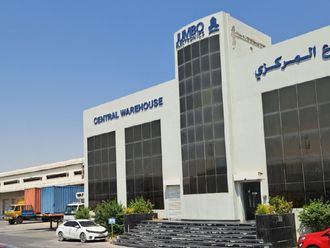New York: Sometime later this month — precisely when is a secret — Sam Palmisano, chief executive officer of International Business Machines (IBM), will gather his 15 senior vice presidents in the company's walnut-panelled boardroom in Armonk, New York, for an all-day brainstorm.
It's the annual Global Technology Outlook, at which top executives and scientists decide what ideas to chase most vigilantly.
Research chief John Kelly oversees the discussion as eight other PhD scientists present slides about half a dozen trends the research team thinks IBM can't ignore. The group convenes at about 7.30am, works through a lunch of sandwiches and salads, and doesn't quit until they've reached consensus.
Decisions made at the brainstorm shape which projects get funded, which companies IBM will buy next year, and, for investors, whether the company will extend its 26 straight quarters of increased earnings per share.
"The numbers are compelling," said Dick Glasebrook, a New York-based managing director at the Straus Group unit of Neuberger Berman, which owned 10.6 million IBM shares as of September 30.
"There's a high priority, as a differentiating factor, in focusing on research."
Niche acquisitions
IBM invested $5.8 billion (Dh21.2 billion) in research and development last year, 6.1 per cent of revenue, compared with $3.0 billion, or 2.4 per cent, at Hewlett Packard. That's led to technologies such as new microprocessor designs and an IBM supercomputer that will compete on the Jeopardy! quiz show next year.
The company counts on Kelly and his team for the most significant innovations and augments their efforts with niche acquisitions.
Since Palmisano became CEO in 2002, IBM has spent about $28 billion on deals compared with more than $43 billion each for HP and Oracle.
"We're not wandering off into the weeds relative to our strategy," Kelly, 56, said in an interview. "Sam spends not only a lot of money, but a lot of time on this subject."
IBM's 3,000 researchers play a role broader than invention. At the brainstorm session and other forums, Kelly and his scientists help forge strategy and deal plans. A year ago at the meeting, they identified the digitisation of health care records as a top priority, highlighting one gap in software that was filled with a deal for Initiate Systems in March.
Kelly also sits on the committee that screens possible acquisitions, along with M&A chief Elias Mendoza.
"They, more proactively than others, are really evaluating, ‘Is this something we need to go out and purchase or is this a solution we can build'," said Jeff Bistrong, a Boston-based managing director at investment bank Harris Williams & Co who has sold companies to IBM.
The strategy hasn't led to stronger revenue growth or stock-market performance than rivals. In the past eight years, IBM has boosted sales 15 per cent, while HP and Oracle have more than doubled revenue. Since the start of 2002 through Thursday, IBM shares climbed 21 per cent as HP and Oracle more than doubled. Still, IBM's 26 quarters of per-share earnings increases outstrips the six at HP and five for Oracle.












